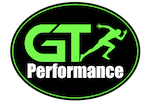HIRING: Sports Performance Coach
Look, I’m not going to beat around the bush. If you don’t love the craft of performance training/S&C, please don’t apply.
Here’s what we need:
- Passion. You need to care A TON about what you do and the people you do it for. If you don’t have a deep drive to make a difference in the world, then you’re not a good fit. If the thought of showing up to work that doesn’t provide meaning doesn’t make you nauseous, then you’re not a good fit.
- Curiosity and intelligence. We’re not a run of the mill business. We need to be the best in the world at what we do. If you don’t like to spend your free time reading and learning more about your craft, then you’re not a good fit.
- High agency. This position is for a go-getter. Someone who believes that they happen to the world, the world doesn’t happen to them. If you’re not comfortable identifying and solving problems on your own, then you’re not a good fit.
Who are we?
The usual answer here is “we combine sports performance/S&C training, nutrition coaching, and physical therapy to help athletes maximize their athletic potential.”
However, I’d like to dive deeper and paint a picture of what the vision is for GT moving forward, so that you can decide whether that’s a vision that aligns with your personal and professional goals.
We want to be a world leader in athlete development. I choose the words “athlete development” deliberately. I want to redefine what long-term athlete development actually means, popularize it, and solve real problems that athletes and their parents face.
S&C coaches complain about how athletes specialize too young, play too many games in a weekend, go to showcases at the wrong time, don’t have enough free play, don’t invest time into strength training, and a million other things. I don’t want to complain about it, I want to be the solution.
When done the right way, I believe athlete development has 5 pillars/objectives:
- Optimize athletic potential
- Maximize athletic enjoyment
- Instill lifelong health behaviors
- Instill translatory life skills
- Minimize injury cost
Our role is to help each athlete get the most out of their athlete development process.
Coach’s Roles and Responsibilities
- Evaluate an athlete’s physical performance metrics, biomechanical tendencies, past medical history, goals, and sport needs.
- Create programs designed to meet the needs for the athlete’s evaluations.
- Orchestrate the execution of these programs and interventions in small groups (usually up to 6 or 8 athletes) and team settings.
- Collaborate with interdisciplinary team members in a high-performance environment (sport coaches, physical therapists, physicians, athletic trainers, dietitians, etc.)
- Attend athlete games/events to show support and network.
- Assist with a variety of administrative tasks, including but not limited to: scheduling, finance, and marketing under the direction of the CEO.
- Other miscellaneous tasks
Hours
- Regularly have less than 30 hours of “in-person” time. The remainder of hours are to be used for programming, continuing education, client outreach, etc.
- Monday, Wednesday, and Saturday mornings
- Tuesday and Thursday evenings
- Friday and Sunday off.
Salary
- $70,000 OTE
- $50,000 starting salary.
Benefits
- Retirement account employer contributions (SEP-IRA).
- Health, dental, vision available.
- Paid time off
- Continuing education budget
- Gym access
Qualifications
- Bachelor’s degree in movement-related field (current or expected soon)
- Relevant nationally recognized certification (current or expected soon) (NSCA-CSCS strongly preferred)
- First-aid, CPR, and AED certification
- Current on all vaccinations (including Covid and Flu)
- Alignment with GT Values (gtperformance.co/values)
To apply, please email a cover letter and resume to Dr. Zach Guiser in one, combined PDF at zach@gtperformance.co (not .com)
